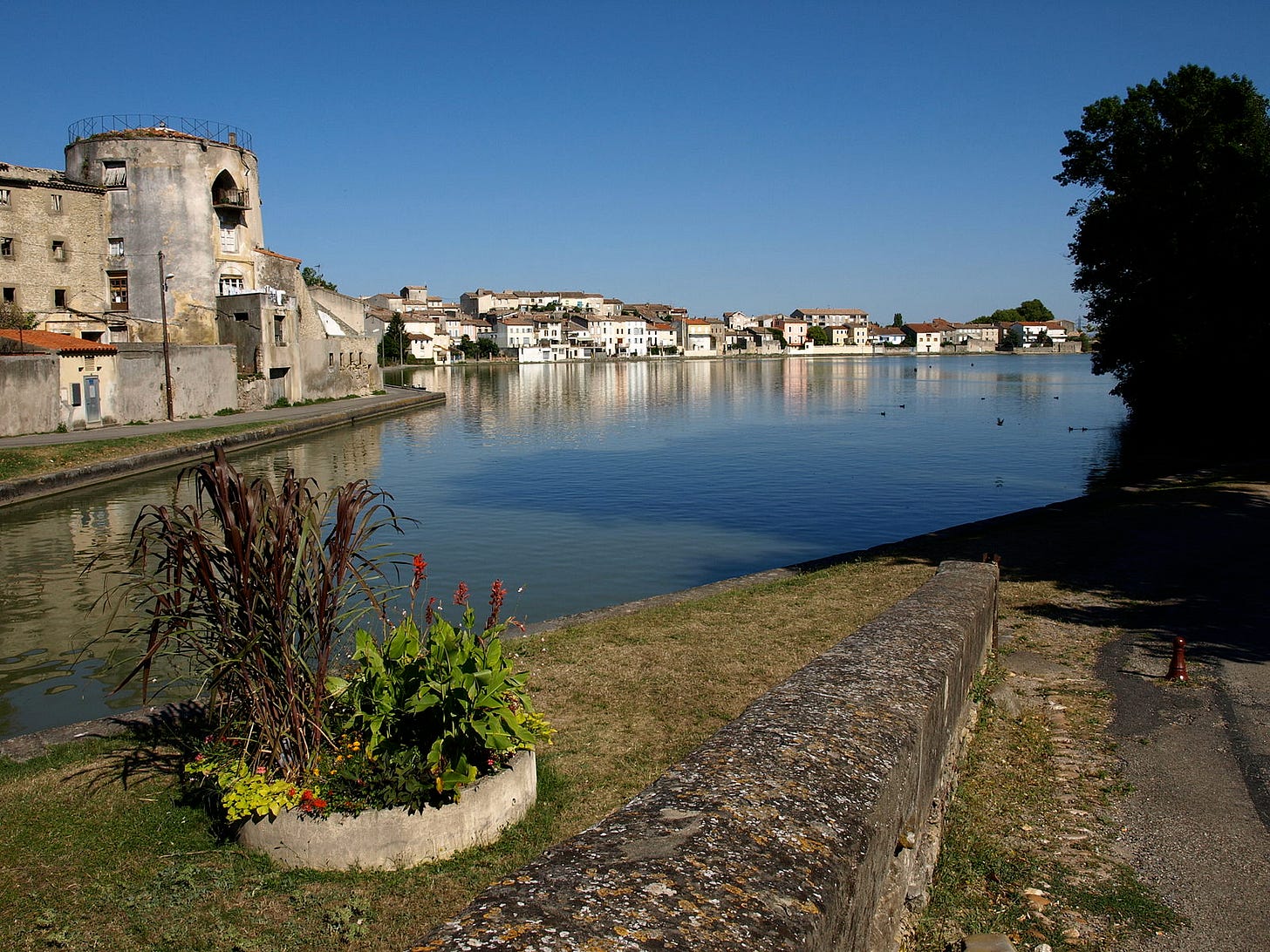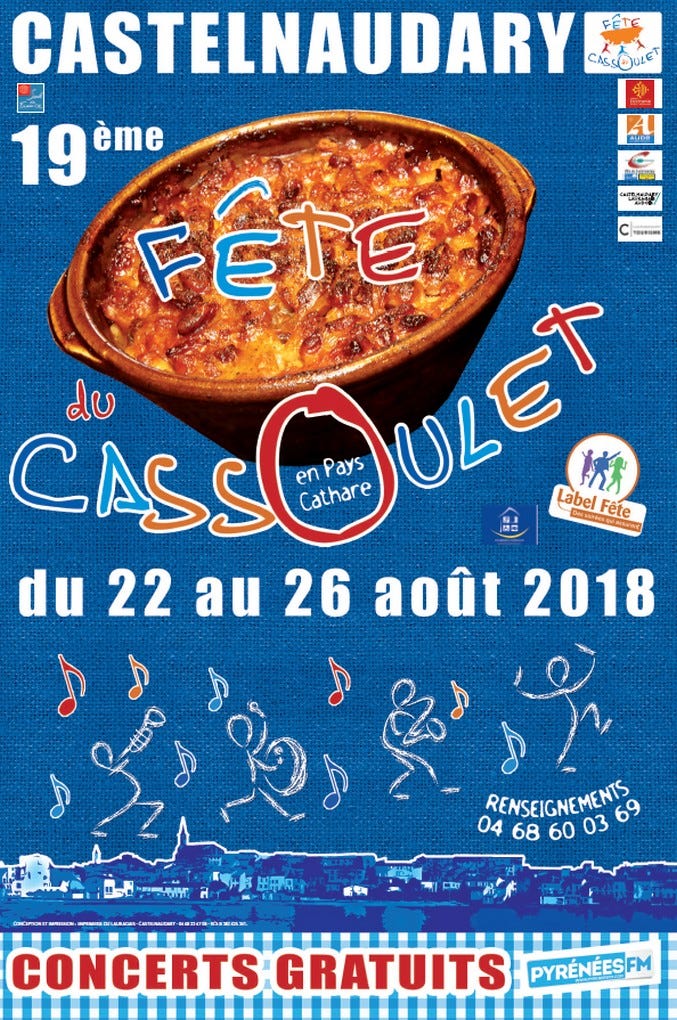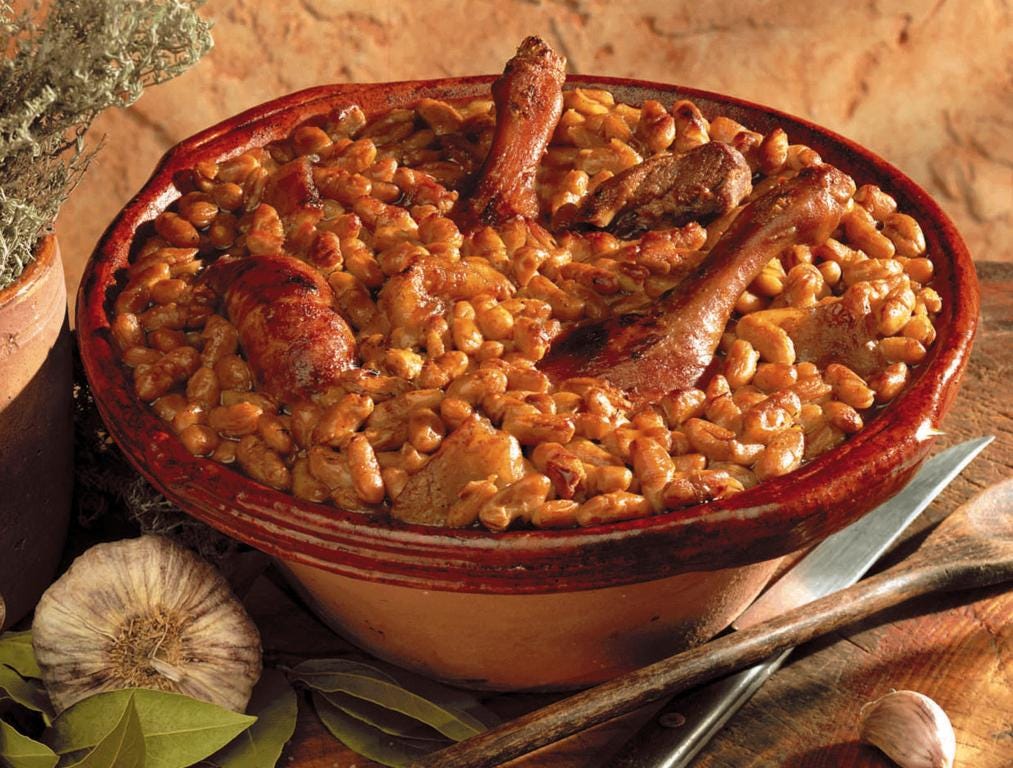Portraits of France: Inside the Cassoulet Brotherhood
A reporter travels to the city where cassoulet was born, and gives up all pretense of journalistic "objectivity"

Groucho Marx once said that he would never join a club that would have him as a member. I've never been much of a joiner myself. But when, a number of years ago, the Great Cassoulet Brotherhood insisted on inducting me into its ranks, how could I refuse?
The brotherhood is headquartered in the southern French town of Castelnaudary, where cassoulet--that hearty French country ragout of white beans, crispy duck or goose, pork and sausages--was supposedly invented during the Middle Ages. Cassoulet gets its name from the cassole, the earthenware dish the stew is baked in for several hours. I imagine it was my own enthusiasm for this ambrosial concoction that first brought me to the attention of the brothers, who are formally known as the Grande Confrerie du Cassoulet de Castelnaudary.
As a part-time food writer then living in Paris, I had thought it my journalistic duty to objectively report on France's culinary traditions. But as my travels increasingly included swings through Castelnaudary, a modest burg astride the waters of the Canal du Midi, the jig was up. It became clear to the brothers that I was hooked on cassoulet. In other words, they had me where they wanted me.
Indeed, has any brother uttered more passionately than I the sacred oath of our organization, which must be spoken in Occitan, the native dialect of southwestern France? "I swear to defend, for all my life and beyond, the quality and the glory of the great cassoulet of Castelnaudary, or if not, may a big cassole fall on my head."
And imagine my happiness when, after two years as a dignitary--an honorary member--the brothers elevated me to the highest rank of chevalier (knight), the first non-French person to hold this honor. As I stepped up to the podium before hundreds of spectators during Castelnaudary's first annual cassoulet festival, the brothers draped the long brown robe around my proud shoulders and placed the round hat (in the shape of an upside-down cassole, of course) on my held-high head.
Then, a few years later, I once again answered the call, when Castelnaudary held its second annual cassoulet festival. The festivities kicked off on a serious note, with a day-long gathering of experts who debated cassoulet's nutritional merits. One dietitian was met with hisses and boos when she suggested that the fat content of our calorie-laden treasure might be a little higher than desirable. She had apparently confused the cassoulet of Castelnaudary with the one from Toulouse, which we brothers naturally consider an inferior product.
This important business out of the way, the festival began in earnest. With Serge Vialette, our bearded, round-faced Grand Master in the lead, our robed order marched through the streets of Castelnaudary. The mayor, Patrick Maugard, probably elected because he can eat cassoulet without getting it in his bushy mustache, reminded the gathering that cassoulet was (allegedly) invented when the English laid siege to Castelnaudary and the townspeople had to resort to throwing the last of their victuals into a giant pot and keep the savory stew simmering until the siege was lifted.
Throughout the festivities, we brothers, in our flowing robes, were everywhere to be seen. There we were aboard a barge being pulled up the Canal du Midi by a big brown horse, just as in the days when boats had no motors; there we were at a cocktail party at the city hall, toasting the success of the festival with the mayor. And on the last day of the festival, Serge--smoking a small cigar and directing traffic on his cell phone--took his seat on a stagecoach at the head of the parade of floats that coursed through the town.
As the parade wound through the narrow streets, past the modest little houses with their blue and white painted shutters, I walked beside the stagecoach, handing out bags of confetti to children and trying to make sure our floats didn't run over their feet. It occurred to me how much I felt at home I felt in this town hundreds of miles south of Paris, where the main thing I had in common with the people was a love of a classic country recipe.
At last I had found a club I was worthy of, and that was worthy of me.

Notes: This article is adapted from one I published in Bon Appetit some years back. It was a followup story to one I published even earlier in Saveur, which can still be found online (its date is later than this one because it only went online years later.) This article had a couple of sidebars which go with it, including one about the history of the cassole. But most important of all, of course, is a bona fide recipe for the cassoulet of Castelnaudary, which can be found here. It is as close to the real thing as you are likely to find in an American publication. Our former Grand Master, Serge Vialette, sadly died last November. And Etienne Rousselot's restaurant in Labastide-d'Anjou is still in business, although I can't quite figure out if Etienne is still alive (his son is now running the place.) I will find out and update this note if I ever do.





Making me hungry!